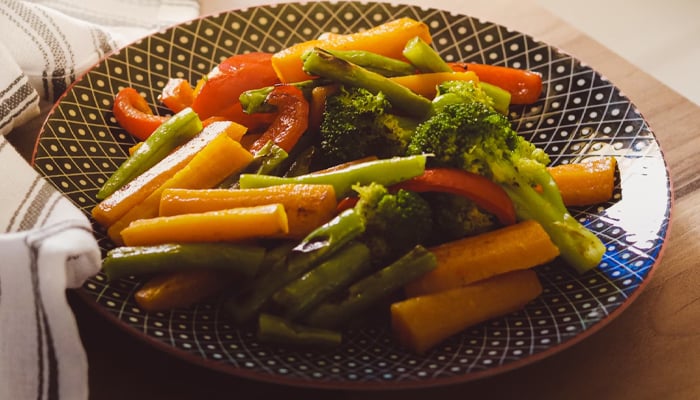Diet quality directly impacts chronic pain levels: study
Chronic pain lasts more than three months and affects about 30% of world's population
The quality of your diet directly impacts pain levels and physical function, especially in females, regardless of body fat levels, according to a recent study published in Nutrition Research.
Researchers analysed data from the Whyalla Intergenerational Study of Health (WISH), which included 654 Australians aged 18 to 89, with women comprising the majority (57%), as reported by Medical News Today.
The study aimed to determine whether body fat — measured by body mass index (BMI), waist circumference, or body fat percentage — acts as a common factor linking diet quality to outcomes such as pain and physical functioning.
Diet data were collected using a 12-month food frequency questionnaire, and diet quality was assessed with the Australian Dietary Guideline Index. Pain levels were measured using a pain scale survey, while hand grip strength was evaluated to assess physical function.
After analysing the data and accounting for factors like age and energy intake, researchers found that body fat did not mediate the relationship between diet quality and chronic pain. However, they did discover that diet quality directly influences pain levels.
How can intake of healthy food alleviate chronic pain?
Chronic pain, a kind of pain that lasts more than three months, affects about 30% of the world's population.
Causes of chronic pain vary from one to another but research has found a prominent link between body fat and chronic pain.
Obesity creates a difficult-to-break cycle where excess weight can exacerbate pain, while severe pain can contribute to further weight gain. This cycle occurs because obesity and pain make it challenging for the body to exercise and lose fat.
However, recent studies suggest that dietary patterns may influence pain levels independently of body weight. The study found that women who consumed foods such as fruits, vegetables, lean proteins, and grains reported lower levels of pain.
Dr. Thomas M. Holland, MD, MS — who was not involved in the study but spoke to Medical News Today — attributed this effect to the anti-inflammatory and antioxidant properties of these foods.
He explained that incorporating items like berries, extra virgin olive oil, dark leafy greens, fatty fish rich in omega-3s, nuts, seeds, and whole grains could "help reduce pain severity and improve overall well-being."
-
James Hetfield's health struggle amid his 2026 Las Vegas Sphere Residency
-
Lamar Odom details struggle with addiction and ‘amazing’ rehab experience
-
Hilary Duff details how she protected her children’s mental health amid divorce
-
Courtney Love recalls how ‘comparison’ left Marianne Faithfull ‘broken’
-
Katherine Short became vocal ‘mental illness’ advocate years before death
-
Demi Lovato claims fans make mental health struggle easier
-
6 celebrities who have been vocal about anxiety and 'panic attacks'
-
Lewis Capaldi details 'impact of Tourette' on his career













